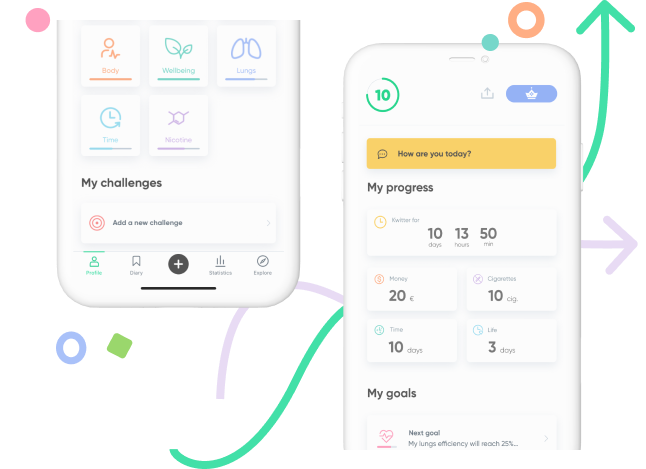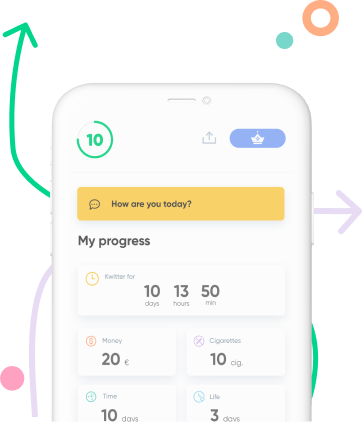April 28, 2021
Tips
How to motivate yourself?
We know how difficult it can be to motivate ourselves when we are caught in a spiral of procrastination. So how do you motivate yourself?
Motivation is a force that pushes people to take action. However, it can be difficult to motivate yourself if you are caught in a spiral of procrastination, where you always put everything off until later. So, how can you motivate yourself to do something about it? Is there a miracle recipe? Is it all a question of motivation? We enlighten you in this article!
How to motivate yourself and take action?
To find motivation and take action, it's important to know why we want to do what we have in mind. Indeed, whether we want to stop smoking, lose weight or start our own business, we always have goals in mind that we want to achieve. The reasons that push us to pursue them can be multiple. For example, I may want to start my business to:
Be free;
Make a good living;
Make people proud of me.
There may be one or more “whys”, and it's important to write them down to keep track of them, as they may help you if your moral goes down.
Another of your goals might be to quit smoking. But why do you want to quit? In order to make your quit a reality, we recommend that you list your motivations, your reasons, on a piece of paper. This way, you will be able to reread them in case of a slump and remind yourself every day of why you are making these efforts. For example:
I want to quit smoking to protect my loved ones from secondhand smoke.
I want to quit smoking for economic reasons.
I want to quit smoking to be healthier.
I want to be more physically fit so that I can feel better about myself and have a glowing complexion.
I want to get my breath back and stop being out of breath when climbing stairs.
I would like to have better cardiorespiratory endurance to get back into sports.

How to motivate yourself in the long term?
To motivate yourself on a daily basis and keep your commitments, what better way than to transform your motivation into a habit? But turning your motivation into a habit starts with the planning stage.
Step 1: Set your goals to motivate yourself
In order to plan your motivation, you should set goals. This will allow you to become aware of the path to follow and to identify the different steps to take to stay motivated along the way.
Let's say you want to get back into sports. To motivate yourself, first identify your goals, for example with the SMART method (for Specific, Measurable, Achievable, Relevant and Time-bound):
Specific: to do sport.
Measurable: the objective “to do sports” is not measurable, unlike the objective “to succeed in running 5 kilometers” which is.
Achievable: the objective must be accepted by the person who pursues it in order to maximize his will to reach it. The objective “to run 5 kilometers” when one doesn't like running and finds no interest in it is therefore difficult to achieve. The objective must make sense to us.
Relevant (or Realistic): the goal “I want to run a marathon this year even though I haven't done any sport for a long time” is difficult to achieve. Failing to achieve it could even demotivate you. On the other hand, the goal “I would like to be able to run 10 kilometers after six months of training”, or “I would like to be able to run a marathon in a few years” are much more realistic. It's important to choose realistic goals and to give yourself enough time to reach them, while remaining kind to yourself.
Time-bound: you must define your objective in time, for example, “I would like to be able to run 5 kilometers one month after I start exercising again”.
Step 2: Motivate yourself by divided goals into subgoals
Once you have your goal, you need to divide it into subgoals. This step is particularly important, as it allows you to better visualize the path to follow. In short, breaking down a goal allows you to make it more concrete, and therefore, easier to achieve.
Let's go back to the previous example: you want to get back into sports. Start by making a calendar of the different sports sessions you plan to do in the month, writing down their duration, number and the type of exercises you want to do.
By breaking down your goals, you'll be reenergized each time you accomplish one of these subgoals, as they'll bring you closer and closer to your ultimate goal. And remember to be kind to yourself and proud of each accomplishment.
Step 3: Motivate yourself over the long term by adopting a routine
To stay motivated, it's important to develop a routine that is easy to follow, and that is related to the goal. This routine should be composed of tasks that are so simple that doing them will become an automatic process that requires little effort and thus will be less likely to be postponed until later. For example, this routine can be to put on your sneakers every evening at 6:00 pm to go running. It could also be drinking a glass of water before you start your paperwork. In quitting smoking, it could be brushing your teeth, playing a game on your phone or go to your Kwit application every time you feel a craving coming.
Step 4: Be active every day to motivate yourself
Sitting on the couch for five minutes to rest can be nice. However, spending the day there can de-motivate you and even make you feel guilty for wasting a day in pursuit of your goals. On the contrary, by being active and moving forward with your projects, you will be proud of yourself at the end of the day and will want to do it again the next day. That's why it's important to stay active and keep boredom at bay in order to stay motivated in the long run. Of course, you can take breaks and relax, and it's even recommended: you will be more efficient when you are well rested than when you are chasing tasks until you're exhausted. It's simply a matter of finding the balance between activities and rest by getting back to your natural rhythm. Deep down, we've all spent days in bed, waiting for the hours to pass. But by living each day to the fullest, motivation follows!
You now have all the tools you need to motivate yourself and most importantly, to stay motivated over time. We wish you good luck if you have decided to quit smoking! Put your fears in the closet and believe in yourself!
For more tips, follow us on Facebook, Instagram, Twitter and LinkedIn!




